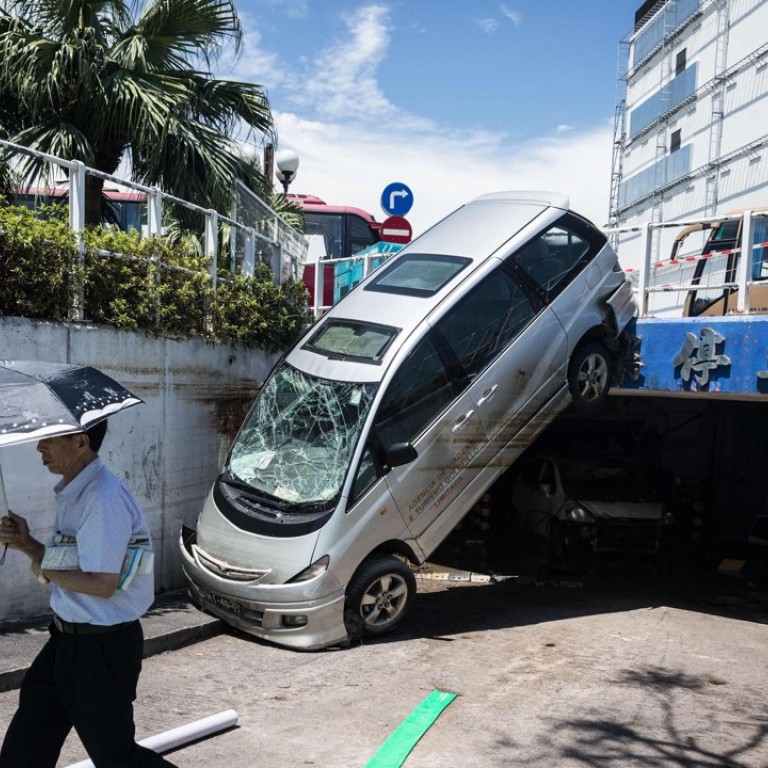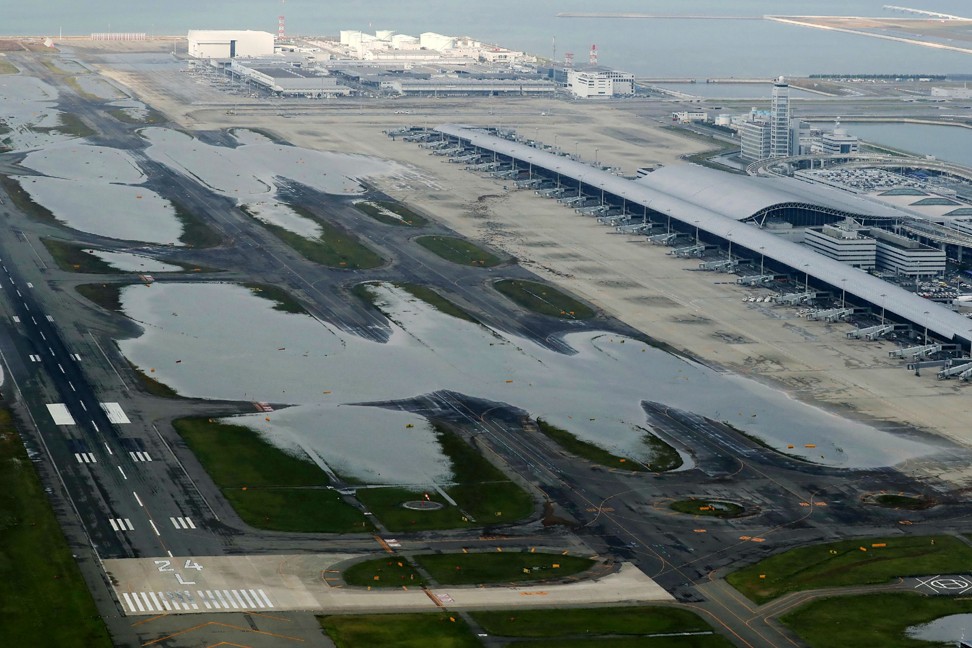
The only way to kick the world into action is for politicians to see how climate change destroys lives in their own constituencies
- Politicians need to see people killed and property destroyed by hurricanes, typhoons, floods, droughts, wildfires, and heatwaves
- Predicting such tragedies in some distant dystopia carries no political heft whatsoever
Last week, Japan’s Kanji Proficiency Society revealed its “Word of the Year”, based on a nationwide annual poll organised since 1995. The word was “sa i”, which means “disaster” – chosen for the second time in 24 years.
While it was chosen after unprecedented heat, floods and typhoon damage across Japan in 2018, the word was tailor-made for the 25,000 scientists, officials and environmental campaigners gathered for the COP24 global climate conference in Katowice in Poland, who dispersed on Sunday after two fractious weeks of meagre progress on how to tackle the world’s climate emergency.
Michal Kustyka, the Polish official presiding over the meeting, sought to provide comfort: “Every single step forward is a big achievement. You have made 1,000 little steps forward together.” But others were more blunt: “In the climate emergency we are in, slow success is no success.”
The choice of the venue was fascinating. The COP24 conference centre is on the site of a coal waste dump; discussions took place in the shadow of smokestacks and coal plumes from the Wujek coal mine three kilometres away at the heart of Poland’s Silesian coal deposits. Organisers explained that the aim was to “showcase a city and region in need of transition away from its lifeblood”.
As attendees discussed the urgent need to eliminate fossil fuels – coal the first among them – by 2050, Poland’s President Andrzej Duda was defensive: “We have coal deposits that will last for 200 years. It would be hard to expect us to give up on it totally.” Poland today generates 80 per cent of its energy from coal, while China generates 60 per cent, and the United States 30 per cent.
Against the backdrop of such a daunting transition, wilfully contrarian US representatives ran a highly contentious workshop on a “realistic and pragmatic” agenda justifying the continued development of coal. Note that the US is estimated to have the world’s largest coal reserves.
The US was joined by the most unlikely of bedfellows – Russia, Saudi Arabia and Kuwait – in refusing to endorse the Special Report on Global Warming by the Intergovernmental Panel on Climate Change (IPCC).
In the teeth of alarming consensus warnings from the world’s environmental scientists, this blockage meant that the final text of the COP24 agreement merely “recognises” the role of the IPCC, “expresses appreciation and gratitude” to the scientists who produced it, “welcomes” its timely completion and “invites” nations to “make use of the information” it contained.
“A year of climate disasters and a dire warning from the world’s top scientists should have led to so much more,” said Jennifer Morgan of Greenpeace, speaking the minds for many. “Instead, governments let people down again as they ignored the science and the plight of the vulnerable.”
Before becoming too disconsolate, it is important to recognise some progress at the Katowice meeting. Rules for measuring carbon emissions were agreed and targets confirmed. Progress was also made on how to fund the transition costs of poor, developing countries. China strengthened its commitments. Carbon trading schemes were discussed, though agreement was blocked by Brazil.
It is also helpful that so many met in such a blaze of global publicity to talk bluntly about the climate crisis we face. Those “thousand little steps” surely count for something.
But it is no wonder that Anjana Ahuja, the Financial Times science commentator, complained that “the international silence was deafening” following the latest IPCC report. “Climate change denial, no longer a credible political position, has given way to climate change indifference,” she wrote. Others in Katowice called this “apocalypse fatigue”.
It is a perplexing puzzle that in the face of such a striking scientific consensus over the extreme and urgent climate threat that we face, so many leaders with fossil fuels at the heart of their economies – from Donald Trump in the US and Australia’s Scott Morrison, to Poland’s Duda – continue to shrug their shoulders.
My sense is that the main crisis here is in the poverty of messaging. Politicians will always ignore the global, when a local issue is biting their heels. They will also ignore future problems when they are awash with present ones.
Scientists’ abstracted warnings also leave them cold: climate change feels distant and unreal when it is about whether global mean temperatures will be 1.5 degrees or 2 degrees higher, or about sea levels rising 10 centimetres more than previous models, or the melting of the ice cap over Greenland or even the bleaching of Australia’s Great Barrier Reef.
The warnings of the awesome, awful consequences of climate change and global warming need to be local and palpable. In Osaka, what politician can be unmoved by the fact that Kansai airport was shut for 17 days after Typhoon Jebi?

In North Carolina in the US, seeing 1.7 million people evacuated as Hurricane Florence swept in, and over 500,000 people losing electricity, is a massive political embarrassment. So too, as 375,000 people were evacuated in Florida ahead of Hurricane Michael, with pecan and cotton farmers losing their entire crops, 2 million chickens killed, vegetables worth US$480 million lost, and 3 million acres of commercial timber destroyed. So too, the devastating forest fires across California.
Politicians need to see hurricanes, typhoons, floods, droughts, wildfires, and heatwaves killing people and destroying property. Predicting such tragedies in some distant dystopia carries no political heft whatsoever.
As COP24 closed, it is easy to feel gloomy that so little is being done to tackle the grave and urgent climate challenges that face our communities. That is undoubtedly why for Japan, “sai” is the word of the year.
But the warnings are now clear and gripping. We need the messaging to drop down from the stratosphere to become relevant to us today and in our local communities.
For Hong Kong, Typhoon Mangkhut was just such a message, and as we close on what is expected to be Hong Kong’s hottest year on record, how long will it be before our next massive local warning?
David Dodwell researches and writes about global, regional and Hong Kong challenges from a Hong Kong point of view

